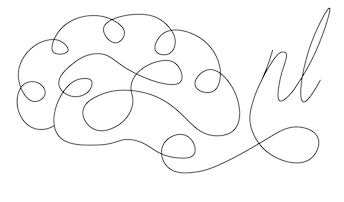Why Fighting Your Feelings is a Losing Battle
By New Light Counselling NL
Why Fighting Your Feelings is a Losing Battle
Ever find yourself asking, "why can't I get over this?", "what's wrong with me?", or telling yourself that you "shouldn't" be feeling a certain way? We often battle against our emotions. In the moment, we believe that if we can just push away our difficult emotions - sadness, anger, guilt, disgust - then we won't have to deal with the uncomfortable experiences that come along with them. However, the problem with the tendency to ignore difficult emotions is that the more you fight against them, the more they can grow and overwhelm you - causing even more anxiety, confusion, and anger. In these moments, we’re not only experiencing the original difficult emotion, but also the anxiety and stress of having to hide it from ourselves and from others.
Take for instance the following example: you put hours and hours into preparing for an exam only to receive a lousy mark. When you see the mark, you instantly feel disappointment, and guilt. These emotional experiences are uncomfortable. You might feel a fluttering in your chest, your heart rate increases, palms sweat, your mind starts running. You try everything to distract yourself from this experience, to get it to stop right away! You might be successful in repressing the experience by going out with friends. However, the next time you have to study for an exam, you may begin to feel those same emotions and physical changes happening. This is because instead of processing your emotions, they were ignored , leaving them raw and unresolved.
We have the belief that if we ignore our emotions we won’t have to deal with them, but is that really the reality? There are some common misperceptions about experiencing difficult emotions that can leave us feeling stuck, frustrated, and anxious.
Feeling difficult emotions will only make them worse.
We tend to have this perception that difficult emotions are to be avoided at all costs - that allowing ourselves to experience sadness, anger, guilt, etc., will only make the problem worse. It’s understandable that we have this belief. Our minds and bodies have an amazing desire to warn and protect us from dangers, and difficult emotions are considered one of them.
We must be in control at all times.
Another attitude about emotion that works to maintain our anxiety is that we have to be in control at all times. We have to be in control because we’re worried about what might happen if we aren’t! When we make the choice to face something scary, our minds and bodies kick into protection mode. What does it mean to “process” and “feel” emotions? It starts with letting go of some control - which can be scary.
So what can we do?
Changing our relationship with difficult emotions requires practice. It requires us to put ourselves in situations that can be awkward, uncomfortable, or distressing. It requires us to go against our naturally developed ways of coping and step outside of our comfort zone.
It starts with being curious. Instead of spending our energy on fighting against, denying, or ignoring our emotional experience, the idea of “being curious”, allows us to explore the important role that certain emotions play in our lives. Asking yourself such questions as “what triggered me?”, “why am I feeling this way”, opens the doors to exploration. Our feelings provide us with important information and they want to be heard!
https://www.gottman.com/blog/6stepstomindfullydealwithdifficultemotions/
What we tell ourselves when we are curious rather than dismissive is that it’s okay to feel difficult emotions! It does not mean we are weak or out of control. In fact, we are brave for choosing to listen to our bodies rather than running the other way. Over time, we will come to realize that difficult emotions are not as scary as we might think. ALL emotions, from happiness to sadness, play hugely important roles in giving us information about our environment and helping us respond appropriately. When we learn to use our emotions and emotional responses positively, we deepen our relationship with ourselves and can more easily determine how to manage our experiences in ways that benefit us.
Valerie St-Gelais, MACP, C.C.C.
Do you find yourself asking whether counselling is right for you? No matter your reasons for seeking care, you deserve to feel comfortable and assured. Book a free 15-minute consultation for us to get to know you and your needs better, and offer you an opportunity to ask us any questions you may have!


